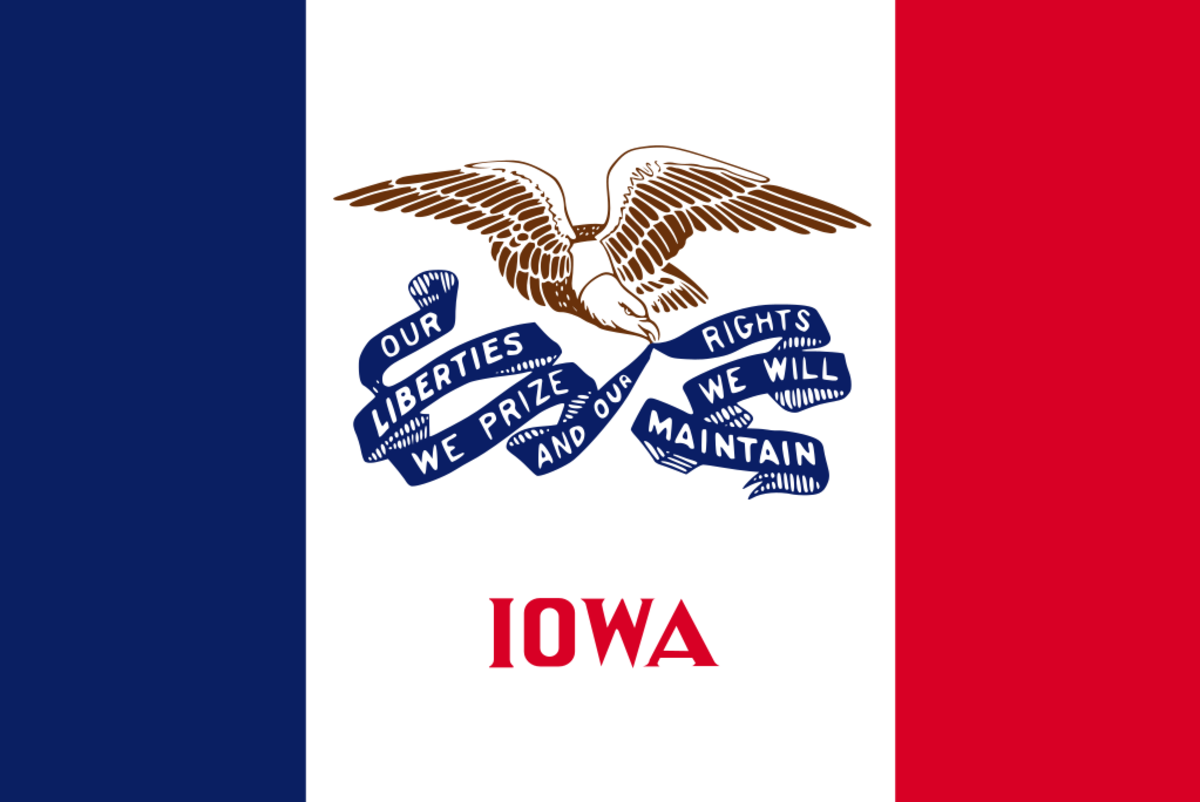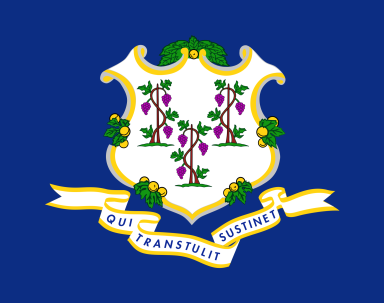Iowa is known as the “Crossroads of America” because of its scenic roads and numerous highways, which allow great motorcycle rides. To keep motorcyclists and other motorists safe, Iowa implements several laws and guidelines to regulate riders’ behavior on the road.
According to the Iowa Department of Transportation (Iowa DOT) Crash Analysis Tool, there were 954 motorcycle-related accidents in the state in 2022, which resulted in 51 fatalities and 265 serious injuries. These data show that the existing risks for motorcyclists on Iowa roads should not be taken lightly.
The most dangerous intersection in the state is at US Highway 20 and Interstate 35 in Ames, followed by US Highway 30 and Interstate 80. The intersection of US Highway 20 and Interstate 380 in Waterloo is also considered high-risk because of the high number of fatal accidents that occur in the area.
Iowa's motorcycle laws are in place to ensure the safety of all road users. However, despite these rules, motorcycle accidents continue to occur. Hence, motorcyclists must remain vigilant, adhere to traffic laws, wear appropriate safety gear, and be aware of road hazards to reduce the probability of accidents.
Iowa Motorcycle Driver’s License Requirements
A motorcycle driver's license endorsement is required to legally operate a motorcycle on Iowa’s public roads. The Iowa DOT oversees the process for obtaining this endorsement. Applicants must already have an existing driver’s license to have a Class M driver's license endorsement.
Applicants need to first pass a written knowledge test and a skills test that cover various topics, such as safe riding practices, traffic laws, and motorcycle operations, and evaluate their ability to safely operate an Iowa-approved motorcycle.
The Class M endorsement is added to a rider's existing driver's license and is valid for the same period.
Iowa Graduated Driver’s Licenses for Minors
There are additional requirements for motorcycle riders aged 14 to 17. They must complete an approved motorcycle safety course that educates them about relevant subjects like motorcycle operation and traffic rules.
They must hold a valid instruction permit for at least six months before they can apply for a motorcycle driver's license endorsement. A parent's or legal guardian's written consent is also necessary.
Iowa Motorcycle Gears and Equipment Requirements
There are no specific laws in Iowa that require motorcycle riders to wear helmets and protective gear while riding. However, the Iowa DOT Motorcycle Operator’s Manual suggests riders wear a DOT-compliant helmet with eye and face protection; visible and protective jackets, pants, boots, and gloves; and hearing protection like disposable foam plugs and reusable custom-molded devices.
Iowa law requires motorcycles to have specific features and forbids riders from carrying certain items while on the road. Here are some gear and equipment requirements motorcycle riders should follow to ensure their and other drivers’ safety:
Footrests: All motorcycles in Iowa must be equipped with footrests for the rider and passenger.
Headlamps: All motorcyclists must display at least one lighted headlamp when operating a 1977 or later model motorcycle or any model of motorized bicycle on highways.
Packages: Operators are not allowed to carry any package, bundle, or other article that prevents them from keeping both hands on the handlebars.
Iowa Motorcycle Driving Under the Influence Law
The Iowa Driving Under the Influence (DUI) law states that it is illegal for motorcyclists in the state to operate a motorcycle with a blood alcohol concentration (BAC) of 0.08% or higher. This is the same BAC limit that applies to drivers of other motor vehicles, except for commercial truck drivers who are deemed legally drunk if they have a BAC of 0.04%.
Iowa also has a zero-tolerance policy for drivers under the age of 21, meaning that any detectable amount of alcohol in their system or a 0.02% BAC can result in DUI charges.
A first-time DUI conviction for a motorcyclist can result in fines of up to $1,250, jail terms of up to one year, and license revocation for six months. A second DUI violation carries more severe penalties, including fines ranging from $1,875 to $6,250, up to two years in jail, and license revocation for two years. Subsequent offenses result in higher fines and longer jail sentences, with the third offense being classified as a Class D felony. A DUI conviction can also result in increased insurance rates, difficulty obtaining employment, and damage to one's personal and professional reputation.
To avoid a DUI conviction, motorcyclists should always practice responsible drinking habits and never operate a motorcycle after consuming alcohol.
Iowa Implied Consent Law
Iowa follows an implied consent law for DUIs. This means a person operating a motor vehicle, such as a motorcycle, on a public road or highway is deemed to have given their consent to chemical testing for alcohol and drugs if they are stopped on suspicion of DUI.
If a person is pulled over and refuses to submit to chemical testing, their driver's license may be suspended for a minimum of one year.
Iowa Motorcycle Use of Traffic Lanes Law
In Iowa, motorcycles have a right to the full use of a traffic lane and are not subject to restrictions on other vehicles overtaking them in the same lane.
The law also specifies that no more than two motorcycles can be side by side in a single lane and that they are entitled to use the entire width of a single lane to safely pass other vehicles. However, a motorcycle shall not be operated between lanes of traffic or between adjacent lines or rows of vehicles.
Motorcycles are also prohibited from operating in a way that deprives other vehicles of the full use of a traffic lane and should not ride too closely to other vehicles or engage in unsafe maneuvers that could put themselves or other drivers at risk.
It is important for motorcycle riders to understand and follow Iowa's traffic laws to avoid accidents and legal consequences.
Iowa Motorcycle Insurance Requirements
All Iowa motorcycle riders are required by law to carry a minimum amount of liability insurance to cover the costs of any damages or injuries in instances when they face personal injury cases due to negligence on the road.
The minimum insurance requirements for motorcycles in Iowa are as follows:
$20,000 per person for bodily injury.
$40,000 per accident for bodily injury.
$15,000 per accident for property damage.
While there are minimum insurance requirements, motorcyclists may also consider purchasing additional coverage that can provide more protection in the event of serious accidents.
In addition, although uninsured and underinsured motorist coverage is not required in the state, adding this type of protection may help after an accident involving other drivers who do not have sufficient insurance plans.
If you have questions about your motorcycle insurance coverage or need help understanding your legal obligations, you may consult with an experienced insurance law attorney.
How Much Can One Sue for a Motorcycle Accident in Iowa
Individuals involved in a motorcycle accident in Iowa may be entitled to compensation for their injuries, lost wages, and other damages. The amount of compensation they can get depends on the circumstances surrounding their case.
Fortunately, there are no laws that limit the damages a plaintiff can collect in a motorcycle accident lawsuit in the state. However, the amount of damages awarded in a case is ultimately determined by a jury or a judge based on the evidence presented.
A motorcycle accident lawsuit may involve economic and noneconomic damages. Economic damages include quantifiable losses such as medical expenses, lost wages, and property damage. Meanwhile, non-economic damages refer to personal losses such as pain and suffering, emotional distress, and the loss of enjoyment of life.
In some cases, a court may also award punitive damages, which are intended to punish the at-fault party for particularly egregious conduct.
Iowa Statute of Limitations for Motorcycle Accidents
For personal injury lawsuits related to motorcycle accidents in Iowa, the statute of limitations is two years from the date of the accident. For property damage lawsuits, the statute of limitations is five years from the date of the accident. Claims against the government and government entities must also be filed within two years of the incident that caused the injury or damage.
It's important for motorcycle accident victims in Iowa to be aware of the statute of limitations and to act promptly in pursuing legal action. Failure to do so within the prescribed timeframe can result in the loss of the right to seek compensation.
Iowa Is a Fault State for Insurance Claims
Iowa is a fault state for insurance claims related to motorcycle accidents. This means that if a motorcycle rider is involved in an accident, they can file a claim with the at-fault driver's insurance company to recover compensation for their damages. The at-fault driver's insurer is then responsible for paying for the damages up to the limits of their policy.
Motorcycle riders are required to carry liability insurance. If the at-fault driver in an accident does not have one or does not have enough insurance to cover the damages, the injured rider may need to file a lawsuit for claims and rely on their own uninsured or underinsured motorist coverage to recover compensation.
It's essential for motorcycle riders involved in accidents in Iowa to gather evidence at the scene of the accident, including photographs, witness statements, and police reports, to support their insurance claim. They should also notify their insurance company of the accident as soon as possible and provide all relevant information, including the other driver's insurance details.
If the at-fault party’s insurance company denies the impacted driver’s claim or offers an inadequate settlement, filing a lawsuit to recover compensation can be the next step. In this case, it's advisable to consult with an experienced personal injury attorney who can navigate the legal process and ensure that the victim's rights are protected.
Iowa Is a Modified Comparative Fault State for Motorcycle Accident Lawsuits
Iowa motorcycle accident lawsuits follow the modified comparative fault law, where a motorcycle rider involved in an accident and found to be partially at fault may have their compensation reduced based on their degree of fault.
For instance, if a motorcycle rider is found to be less than 50% at fault for an accident, they may be entitled to recover compensation for their damages. However, their compensation will be reduced by the percentage of their fault. This means being 30% at fault for an accident and having damages valued at $10,000 will translate to a final award of $7,000 after 30% has been subtracted.
Motorcycle riders involved in accidents must consult with an experienced personal injury attorney to ensure they receive the compensation they are entitled to. Personal injury attorneys in Iowa typically work on a contingency fee basis, which means they only receive a payment if their clients recover compensation for their damages.
Contingency fees in Iowa are calculated as a percentage of the client's total recovery. This practice is based on Iowa’s Rule 32:1.5, which requires contingency fees to be reasonable and communicated to the client. The percentage may vary depending on the complexity of the case and the attorney's experience and reputation.
Legal Resources for Iowa Motorcycle Accident Victims
Iowa State Bar Association Find-A-Lawyer
The Iowa State Bar Association has a Find a Lawyer directory that can be a valuable resource for motorcycle accident victims seeking legal assistance. The directory allows people to search for an experienced attorney with expertise in motorcycle accident cases who can provide the legal representation they need to pursue compensation for damages. It is important to note that legal representation may come at a cost. However, the initial consultation fee may be waived in some cases, and many attorneys offer contingency fee arrangements.
Iowa Legal Aid
Iowa Legal Aid is a nonprofit organization that offers free services to low-income individuals and families in Iowa. It contains resources on various legal topics, including personal injury law and motor vehicle accidents. Iowa Legal Aid also has information on how to communicate with insurance companies and handle medical bills and other related issues. It can be reached at 1-800-532-1503.
Iowa Accident Report Resources
The Iowa DOT Accident Report website provides information on how to obtain a copy of an accident report. The request form, which can be downloaded from the site, requires information such as the date, time, and location of the accident, as well as the names of the parties involved. It must be noted that accident reports in Iowa are not public records and can only be obtained by those directly involved, their authorized representatives, or certain government agencies.
Iowa Accident Report Form
The Iowa DOT's Online Accident Report Form allows victims and other involved parties to report details such as the location of a motorcycle accident, any injuries sustained, the date and time of its occurrence, the names and contact information of any other parties involved, and the make, model, and license plate number of the motorcycles.
Iowa Motorcycle Operator’s Manual
The Iowa DOT's Motorcycle Operator Manual has a comprehensive guide to motorcycle safety and the state's motorcycle laws. It covers subjects like rider safety, motorcycle equipment, and riding techniques. The manual discusses how to ride in groups, handle dangerous road conditions, and share the road with other vehicles.
Iowa 511 Travel Information
The Iowa 511 website provides access to real-time information about road closures, construction projects, and traffic incidents. It also shows real-time traffic camera images and a weather radar that can help motorcycle riders plan their route and avoid any potential hazards. The Iowa 511 service is available through its website, mobile app, and social media, keeping riders informed about road and weather conditions no matter where they are or what device they are using.
Step into the world of Expertise.com, your go-to hub for credible insights. We don't take accuracy lightly around here. Our squad of expert reviewers, each a maestro in their field, has given the green light to every single article you'll find. From rigorous fact-checking to meticulous evaluations of service providers, we've got it all covered. So feel free to dive in and explore. The information you'll uncover has been stamped with the seal of approval by our top-notch experts.





